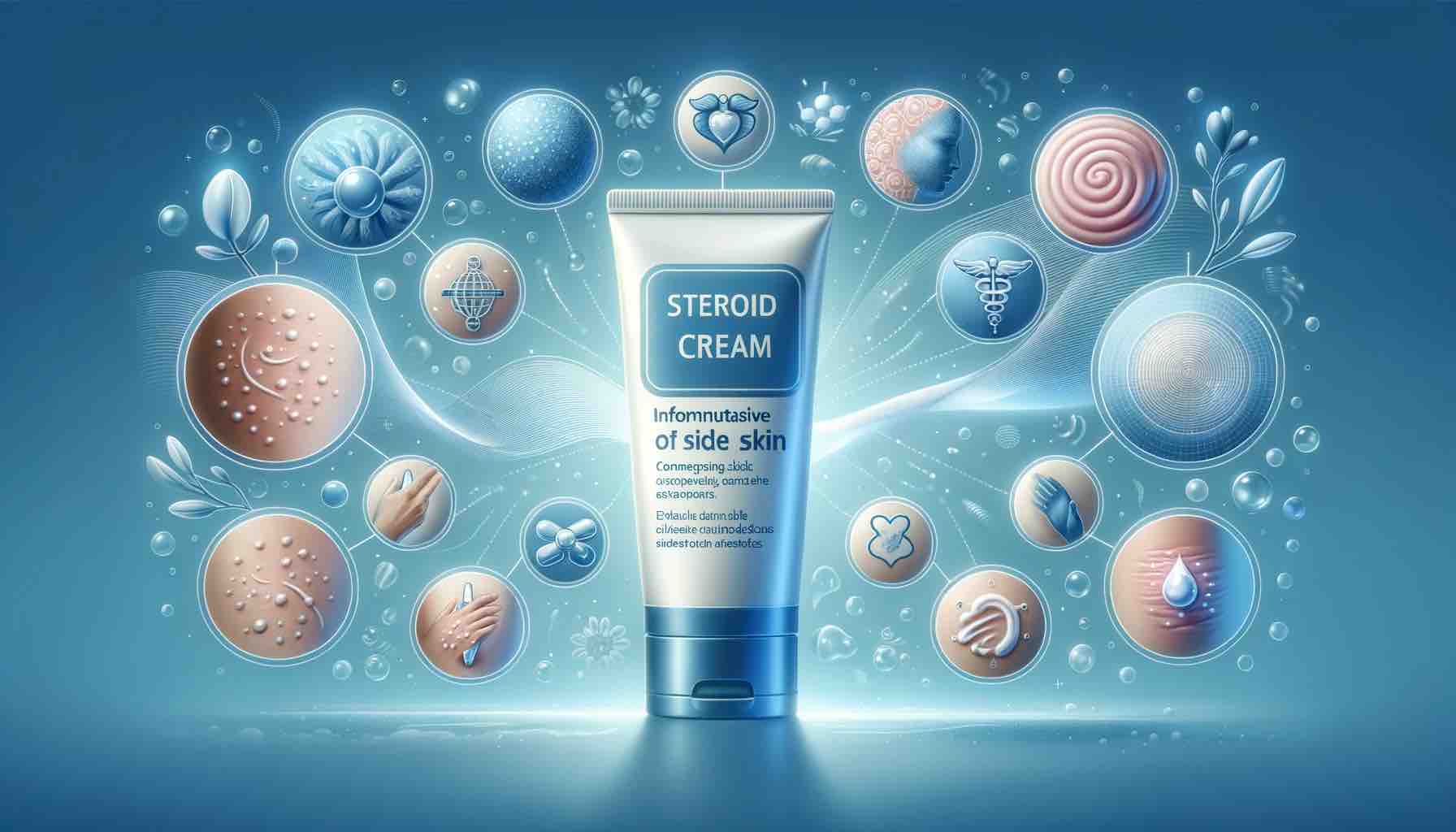
Introduction
Steroid creams, also known as corticosteroids or topical steroids, are commonly used to treat various skin conditions, including eczema. They are known for their effectiveness in reducing inflammation and easing symptoms such as itching and redness. However, like any medication, steroid creams come with their own set of potential side effects. This article aims to explore the various side effects associated with the use of steroid creams in the management of eczema, helping you make informed decisions regarding your treatment options.
Understanding Steroid Creams
Steroid creams are available in different strengths, ranging from mild to very potent. They work by mimicking the actions of hormones your body produces naturally in your adrenal glands. When applied directly to the skin, they can reduce redness and inflammation.
Common Side Effects of Steroid Creams
1. Thinning of the Skin (Skin Atrophy)
Continuous use of steroid creams may cause the skin to become thinner and more fragile. This condition, known as skin atrophy, makes the skin more susceptible to bruises and tears.
2. Perioral Dermatitis
Some people may develop pimple-like bumps around the mouth and on the face as a reaction to the use of steroid creams. This condition is known as perioral dermatitis.
3. Topical Steroid Addiction (TSA)
Long-term use of steroid creams may lead to dependency and withdrawal symptoms when not used, a condition referred to as topical steroid addiction.
Less Common Side Effects
1. Hyperpigmentation or Hypopigmentation
Changes in skin coloration can occur, where the skin may either darken (hyperpigmentation) or lighten (hypopigmentation) in the areas where the cream is applied.
2. Striae (Stretch Marks)
Steroid creams may cause the skin to lose its elasticity, leading to the development of stretch marks, particularly in skin folds.
3. Perioral Dermatitis
A pimple-like rash around the mouth and on the face might develop due to the use of topical steroids.
Factors Influencing Side Effects
- Potency of the Steroid: Higher potency steroids are more likely to cause side effects.
- Duration of Use: Prolonged use increases the risk of side effects.
- Application Site: Areas with thinner skin are more susceptible to side effects.
- Age: Infants and elderly individuals are more sensitive to steroids.
How to Minimize the Risks
- Follow the Doctor’s Instructions: Always use the steroid cream as prescribed by your doctor.
- Limit the Duration: Try not to use the cream for extended periods.
- Choose the Right Potency: Use the lowest potency that effectively manages your symptoms.
- Apply Thin Layers: Applying thick layers of the cream does not enhance effectiveness but may increase the risk of side effects.
Further Reading
- Understanding Eczema and Its Triggers: A comprehensive guide that dives deep into understanding what eczema is and what triggers its flare-ups, providing insights into managing and preventing eczema effectively.
- The Role of Diet in Managing Eczema: Explore the intricate connection between diet and eczema. Learn which foods may help manage eczema symptoms and which ones to avoid.
- Tea Tree Oil Uses for Eczema: Discover how tea tree oil can be a natural remedy for managing eczema symptoms, and learn how to use it safely and effectively.
- Exploring the Impact of Sugar on Eczema: Uncover the relationship between sugar consumption and eczema flare-ups, and learn how managing sugar intake can influence eczema symptoms.
- Fruits and Eczema: What to Eat and Avoid: Gain insights into how different fruits can impact eczema, learning which are beneficial and which might trigger symptoms.
- Beer and Eczema: Is There a Connection?: Explore whether there’s a link between beer consumption and eczema flare-ups, and learn how beer might influence your symptoms.
- Apple Cider Vinegar and Eczema: Discover the potential benefits of apple cider vinegar in managing eczema symptoms, and learn how to incorporate it into your routine.
Each article is meticulously crafted to offer valuable information and practical tips to manage eczema better, enhancing your knowledge and providing various perspectives on managing the condition. Happy reading!
Conclusion
While steroid creams can be highly effective in managing eczema symptoms, awareness of their potential side effects is crucial. Always consult with your healthcare provider to find a treatment plan that is tailored to your needs, minimizing risks and effectively managing your eczema symptoms.
FAQs
- Can I stop using steroid creams abruptly?
It’s best to follow your doctor’s guidance on how to reduce or stop the use of steroid creams to avoid potential withdrawal symptoms. - Are there non-steroidal alternatives for managing eczema?
Yes, there are non-steroidal creams, ointments, and natural remedies available. Discuss these options with your healthcare provider. - How can I manage the side effects of steroid creams?
Immediate consultation with your healthcare provider is advisable if you notice any side effects. They can adjust your treatment plan accordingly.
Blog Tags
eczema, steroid creams, side effects, skincare, dermatitis










[…] Side Effects of Steroid Creams for Eczema […]
[…] Steroid Creams: While effective, the use of corticosteroids should be approached with caution, especially in sensitive areas like the neck. Explore the side effects of steroid creams. […]
[…] Side Effects of Steroid Creams for Eczema: Gain insights into the potential side effects of using steroid creams for eczema treatment, and understand how to use them safely. […]